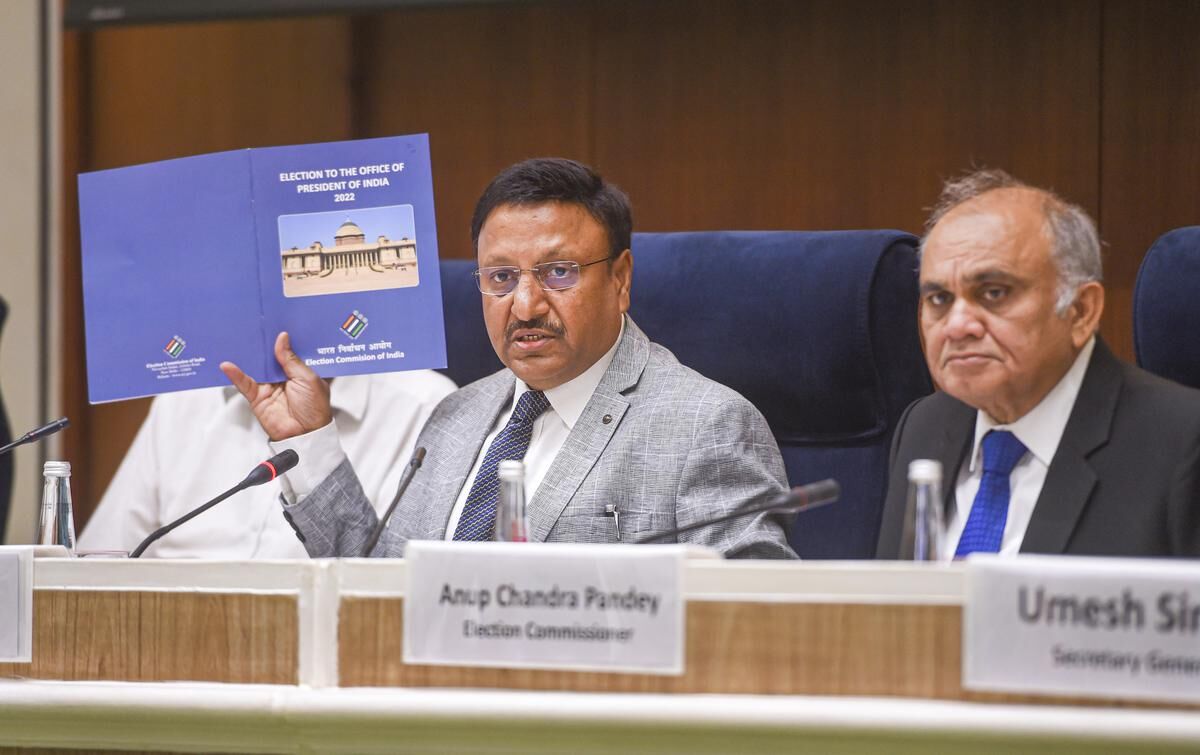Set for the contest

With the beginning of the nomination process for the presidential elections, political activities are gaining momentum in both the NDA and the Opposition camps. The NDA, with its overwhelming majority in Lok Sabha and good numbers in Rajya Sabha as well, appears to be better placed to contest the elections — though it has not revealed its candidate as of now. The Opposition, at the same time, may require a strong and influential candidate to present some real challenge to the NDA. West Bengal Chief Minister Mamata Banerjee held a meeting with leaders of various Opposition parties in Delhi on June 15 to decide on a common candidate from Opposition. How strong a consensus can be formed among Opposition parties, remains to be seen. As per the data analysed by The Hindu, after the five-assembly election results this year, the BJP-led NDA has a potential vote value of 5,39,827 — which is marginally less than the halfway mark of 5,49,451. Notably, the electoral college for presidential elections consists of 776 elected MPs along with elected members of state assemblies, including that of NCT Delhi and UT Puducherry. The vote value of each of the 776 elected MPs stands at 708 while the vote values of elected members of state assemblies vary across states — ranging from eight in Arunachal Pradesh to the highest 208 in Uttar Pradesh. In the indirect elections of the president, India follows the preferential voting system wherein, failing to acquire majority through the first-preference votes, the candidates are distributed lower preference votes to reach majority. In order to ensure that it smoothly sails through the contest, the BJP is already looking for allies across several states. While it may not be very tough for the NDA to garner the remaining two per cent votes required for gaining majority, its path ahead may not be as smooth as it appears. In Punjab, after the recent elections before which it broke away from the Shiromani Akali Dal, the NDA has a mere 464 votes of the total 13,572 votes. Similar is the situation in Tripura. Furthermore, compared to the last presidential polls, the NDA does not have Shiv Sena advantage in Maharashtra where it has just 19,775 votes of the total 50,400 votes. The Opposition can also sense significant chances in other more-vote-value states like West Bengal, Rajasthan, Odisha, Tamil Nadu, Kerala etc. where the BJP doesn't have much hold. The NDA, however, has the big advantage in the form of Uttar Pradesh where it can claim more than half of the total 83,400 votes. Irrespective of the outcome, the spirit of democracy lies in contests. It is in this spirit that the Opposition parties should give their best efforts in making the most out of limited opportunities. The first step, of course, will be to pick a strong candidate. It is learnt that TMC chief Mamata Banerjee has recommended the names of Gopalkrishna Gandhi and Farooq Abdullah. Names of Yashwant Sinha and Ghulam Nabi Azad are also making rounds. With Sharad Pawar already having ruled out the possibility of him contesting presidential polls, both Gandhi and Sinha appear to be frontrunners among potential candidates. As for the BJP, nothing can be said due to its unpredictability. Whether it will give Ram Nath Kovind another chance or try to promote Venkaiah Naidu for the post can only be speculated. Some are also discussing the name of Kerala Governor Arif Khan to offset the damage caused to the Indian government's secular image in the wake of the Prophet remark controversy. Such theory, however, remains a far-fetched speculation. One may have to wait a bit longer to figure out what's in the head of the BJP supremos. Irrespective of that, Opposition parties are expected to finalise an influential name that can challenge the comfort of the ruling BJP. With just over a month left for India to get its 15th president, one can hope for a healthy contest and best possible outcome.



